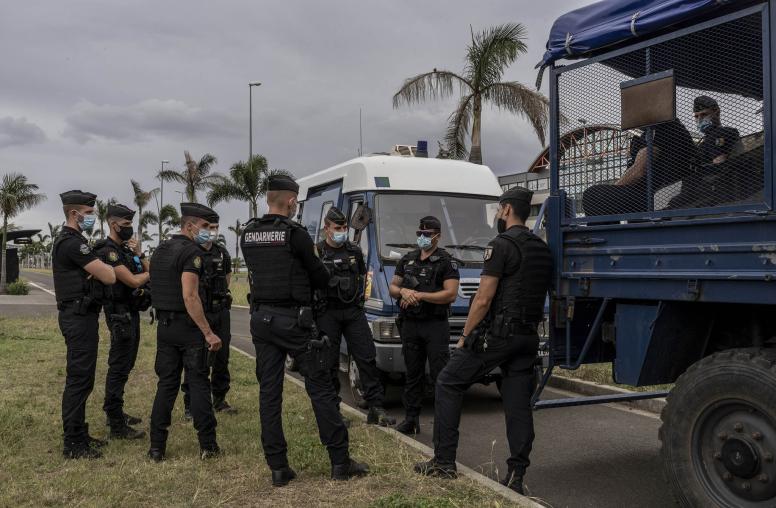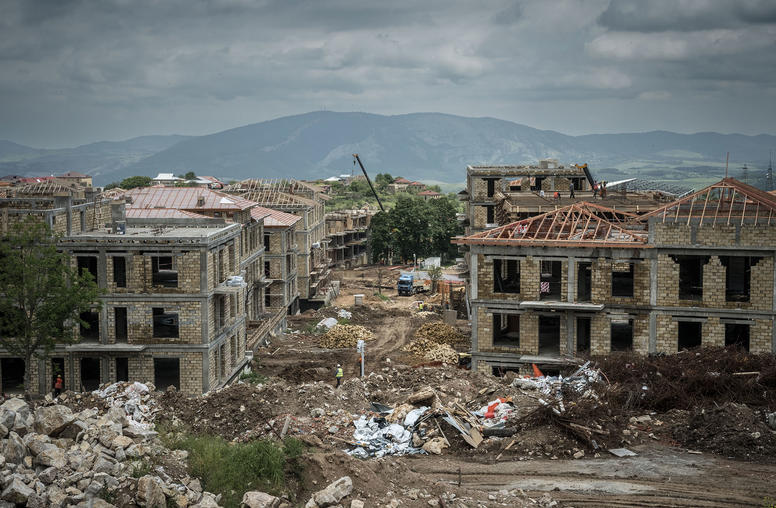 Fragility & Resilience
Fragility & Resilience
Wherever armed conflict erupts, its causes can almost always be traced back to weak or broken social contracts between government and its people. The U.S. Institute of Peace sees such “state fragility” as a complex issue that needs urgent attention. USIP strives to address the challenge of fragility through new approaches to conflict prevention and by strengthening resilience that promotes a sound social compact between the state and society. USIP has joined in convening the Fragility Study Group, a non-partisan initiative aimed at improving the U.S. government’s approach to reducing global fragility.
Featured Publications

Quatre moyens par lesquels les États-Unis peuvent aider à faire progresser Haïti
Depuis que Haïti a conclu un accord politique début avril pour avancer vers une « transition ordonnée », de nombreux progrès ont été réalisés. Médié par la Communauté des Caraïbes (CARICOM), cet accord fixe à février 2026 l’échéance pour la mise en place d’un gouvernement et d’un parlement élus. Bien que politiquement et administrativement fragile, une structure de gouvernance transitoire est en place, dirigée par un Conseil présidentiel de transition (CPT) et le Premier ministre Garry Conille. Une mission multinationale de soutien à la sécurité (MSS), dirigée par le Kenya, est désormais active dans le pays et travaille à stabiliser la situation sécuritaire.

Four Ways the U.S. Can Help Advance Haiti’s Progress
Since Haiti reached a political agreement in early April to push ahead with an “orderly transition," much progress has been made. Mediated by the Caribbean Community (CARICOM), that deal has a February 2026 timetable for an elected government and parliament. Although politically and administratively wobbly, a transitional governance structure is in place, led by a Transition Presidential Council (TPC) and Prime Minister Garry Conille. A Kenyan-led Multinational Security Support mission (MSS) is now active in the country and working to stabilize the security situation. Working with Haiti’s political and civil society leadership, the country’s diaspora and key international actors, the U.S. can help build on these milestones and pave a sustainable path out of Haiti’s long-running crises.

Explainer: What Caused the Recent Unrest in New Caledonia?
Violence engulfed New Caledonia last week as the French National Assembly passed a constitutional amendment that will undermine the political representation of the Pacific territory’s Indigenous Kanak people. During days of unrest unprecedented since the 1980s, security forces and protesters clashed across the archipelago, leaving six dead and hundreds injured. Buildings and vehicles were set on fire in the capital, Nouméa, while streets were barricaded throughout the territory, flights were grounded and New Caledonia was placed under a state of emergency.
Current Projects

Senior Study Group on Counterterrorism in Afghanistan and Pakistan
In 2022, the U.S. Institute of Peace convened a senior study group to examine the evolving threat landscape and counterterrorism challenges in South Asia. The bipartisan study group brought together experts of counterterrorism strategy, diplomacy, intelligence and South Asia to assess terrorism risks from Afghanistan and Pakistan and put forth policy options for future counterterrorism efforts in the region.

Peacemaking in a Turbulent World: Lessons from Intrastate and Interstate Conflicts
Peacemaking in a Turbulent World answers the following central question: What lessons for effective management of intrastate conflicts emerged from the post-Cold War period that are relevant for managing contemporary conflicts which include intrastate, internationalized (featuring direct engagement by outside powers), and interstate conflicts?

Peace and Security Issues in Africa-China Economic Relations
Much of the research that has been conducted on the impact of China’s economic engagement with Africa has focused on their economic exchanges and security engagements in isolation of one another. But few have sought to understand the interconnections between these themes. These interconnections matter, as some Chinese firms are responsible for environmental degradation, population displacement, corruption and illegal extraction activities — all of which are factors that can drive conflict.